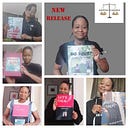EFFECTIVE COMMUNICATION
In my view, the essence of effective communication is the capacity to listen to others without disruption.
“In today’s world, it seems like everyone is eager to talk, but few remember how to listen.” NMB*
I must confess that patience is one of my biggest challenges. My words race out of my mouth while my thoughts sprint ahead.
I struggle to stay engaged when someone goes into unnecessary details. My attention span is very short.
I am most attentive when someone is facing a genuine crisis and needs advice or encouragement.
I am skilled at conversing with people on various levels but have no patience for meaningless chatter.
I have attended some meetings where individuals struggle to digest the information presented, instead choosing to steer the conversation towards themselves.
In a group setting, some people may not be mindful of talking too much, which can prevent others from having the opportunity to share their input.
I can’t tell if it’s intentional or just a lack of awareness, but it’s like those people with no concept of time.
The joy of getting to know people is that each individual possesses a diverse range of interests and hobbies, allowing us to select our tribe of friends based on shared passions and pursuits.
We can pick who we click with and steer clear of the self-absorption of others.
People with restricted interests and minimal experience may find engaging in more profound discussions challenging.
Nevertheless, by being receptive to listening, they have the potential to acquire fresh knowledge.
They might feel uneasy about stepping outside of their familiar surroundings.
On the contrary, some individuals lack experience or have not familiarised themselves with the facts, yet they assert control over conversations they have not bothered to research.
I typically stay quiet when I am not well-informed about a subject.
I make it a point to avoid conversations about politics, religion, and race.
POLITICS I have little respect for politicians, who are often deceitful and engage in unethical behaviour. They manipulate their words to gain our votes, failing to deliver their promises.
RELIGION I’ve never been fond of the word “religion” as it suggests feelings of restriction and oppression rather than freedom and spirituality.
Throughout history, religion has often been used as a tool to manipulate and control individuals’ thoughts and behaviours.
However, faith does not necessarily have the most significant role in this manipulation; instead, it is the influence of culture.
RACE There are numerous forms of discrimination, but I believe that the race card is overused, making it difficult for people to address the issue truly.
I’ve observed that individuals in interracial relationships often feel they grasp race issues on a deeper level, even though they haven’t directly experienced the discrimination their partner of colour has faced. Their own beliefs often shape their understanding.
Racism transcends race and can impact individuals from all walks of life. Discrimination, in any shape or form, has the potential to affect any person.
CHALLENGES WITH COMMUNICATION
Today, being mindful during interactions with others is essential, as misinterpreting information could result in potential legal issues.
One of the biggest challenges I am currently grappling with is effectively communicating through spoken words or written messages.
Since we cannot accurately determine someone else’s sexuality, it is more respectful to refer to them by their names rather than making assumptions that they are ‘he’ or ‘she’.
I’ve gotten into quite a predicament because someone appears and sounds like a man, leading me to refer to them as “he mistakenly.”
Only a few individuals fall into this category, and none are within my immediate social circle. Nevertheless, I must carefully consider my words before speaking.
Many individuals will struggle to embrace this and may react with anger, but they will soon discover the potential losses that come with their resistance to change.
I am a dedicated English language and literature student, and it concerns me to witness the gradual disappearance of critical elements such as grammar, punctuation, and proper spelling as time progresses.
To connect and truly understand one another, effective communication is paramount.
I take great care in crafting my responses to others to prevent misinterpretations, and I strive to keep them concise.
Maintaining balance involves thoroughly contemplating your response to a question or expressing an opinion and carefully evaluating the advantages and disadvantages of how it may be perceived.
Words possess the potency to wield significant influence. Understanding the nuances between dislike, hate, and detest is crucial.
It’s essential to be mindful of how frequently we use significant words to avoid confusion or misinterpretation. For example, saying “I love you” might mean “I like you.”
Some vulnerable individuals seeking authentic love may view this as their chance to form a deep connection with you.
The expression “I hate you” can signify a feeling of aversion towards someone or disapproval of their actions rather than a personal attack on the individual.
Some individuals who lack confidence may resort to attention-seeking behaviours that can be frustrating and lead them to react impulsively, saying hurtful words in the heat of the moment.
Before words escape our lips, we must sift them through a filter, for their impact can be unpredictable and potentially harmful.
In everything, there must be a balance.
Natalie M Bleau
Scripture of Balance
